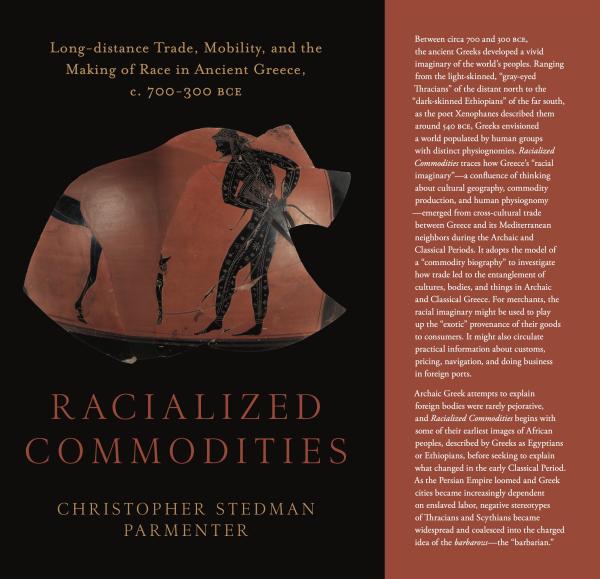Christopher Parmenter

Contact Information
Assistant Professor
Areas of Expertise
- Archaic Greece
- History of slavery
- History of race
- Intellectual history
- Classical reception
Education
- Ph.D. (2020) New York University, Classics
- M.A. (2013) University of Oregon, Classics
- A.B. (2010) Hamilton College, Classical Studies and English
Christopher Stedman Parmenter is an ancient historian specializing in the intertwined histories of race, culture, and long-distance trade in Archaic and Classical Greece. Before coming to Ohio State, I held postdocs at the University of Pennsylvania (2021-22) and New York University (2020-21), where I also received my doctorate in Classics. My book, entitled Racialized Commodities: Long-distance Trade, Mobility, and the Making of Race in Ancient Greece, c. 700-300 BCE (Oxford, 2024), asks how and why Greeks came to see their Mediterranean neighbors—like the “grey-eyed Thracians” and “dark-skinned Ethiopians” listed by the poet Xenophanes around 550 BCE—as racialized ‘Others’ in the middle of the first millennium.
My articles cover a wide range of topics, including slavery in the world of the Archaic Black Sea, the archaeology of ancient Cyprus, Egyptianizing religious practices in the Archaic Greek world, the politics of Blackness in American classical studies during the Cold War, the historiography of ancient slavery, and (as a side project) race and the Armenian diaspora. Forthcoming projects explore how the late eighteenth century abolitionists Olaudah Equiano (1745-97) and Thomas Clarkson (1760-1846)--both writing before the professionalization of Classics--interpreted slavery in ancient Greece and Rome.
Another strand of my research explores how the concept of ‘race’ linked the premodern humanities with the sciences over the past 200 years. One of my recent articles explores how recent advances in archaeological genomics have unsubtly revived the concept of ‘bio-race’ in Mediterranean archaeology. I am a steadfast critic of the emerging field of so-called “genomic history” and vouch strongly from the necessity of humanistic approaches in understanding premodernity.

